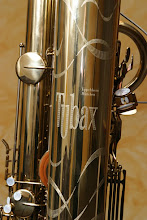Ms. Peifer
Per. 5/10 IB
11/26/08
The Prosecution of Creon
Creon is a cruel man and deserves to be punished. He helped in the war against his own nephew who was the rightful heir to the throne of Thebes, Polyneices, he didn't allow the royalty of Thebes to be properly buried, and he caused the death of his own niece, wife and son. How can such wickedness go unpunished?
Creon, the usurper of the throne, helped to wage the war that killed his eldest nephew, who was the rightful heir to the throne of Thebes. He supported Eteoclus who was the younger of the two brothers and who was the brother who stole the throne from the other one, and showed no remorse for his other nephew, Polyneices,when he was killed.
Another disgraceful thing Creon did was pass a law that forbade Polyneices, Thebeian royalty, from being either mourned, buried, or honored in death in any way, "Dishonors which better fit our enemies are now being piled up on the ones we love"(Johnston lines 11-12). This is what Antigone told her sister, Ismene, when trying to convince her to help her undo the wrong that has been inflicted upon their family. Here is another quote from Antigone to help expand on the subject, " Look—what’s Creon doing with our two brothers? He’s honoring one with a full funeral and treating the other one disgracefully!" (Johnston lines 25-27). Here, Antigone is telling Ismene what disgrace has befallen her brother and who the culprit is. These are firsthand accounts, you cannot deny them.
And yet another thing Creon did was he caused the death of his son, his niece, and his wife, all within a small period of time. He killed his niece by condemning her to death and causing her, in turn, to take her own life rather then be publicly executed, "But you chose life- it was my choice to die" (Johnston line 634) In this passage, Antigone reveals that she chose to die, it wasn't forced upon her. Not only did Creon cause his niece to kill herself, he also caused his son to kill himself in grief from seeing his bride-to-be hanging by the neck in a fine-linen noose, "M: Haimon has been killed. No stranger shed his blood; CL: At his father’s hand? Or did he kill himself?; M: By his own hand— angry at his father for the murder" (Johnston lines 1304-1310) Here, Socrates is describing the cause of Haimon's death, and look who it is: Creon. And the final person he causes the death of is his own wife. Her heart is broken when she finds out both Haimon is dead, and so she kills herself out of grief, "Stabbed with a sharp sword at the altar... She had cried out in sorrow for the glorious fate of Megareos, who died some time ago, and then again for Haimon" (Johnston lines 1445-1450) Creon stumbles upon this scene and weeps for the cause of his evils while carrying the corpse of his deceased son, Haimon.
As you can see, Creon was a wicked man who deserves to be punished. He helped to murder four members of the royal family, and one murder is enough for puishment. Let not this wickedness go unpunished!
Sources:
- Sophocles. “Antigone.” Sophocles Antigone. Trans. Ian Johnston. 9 Aug. 2008. Vancouver
Island University Malaspira. 11/26/08
<http://records.viu.ca/~johnstoi/Sophocles/Antigone.htm>.

No comments:
Post a Comment